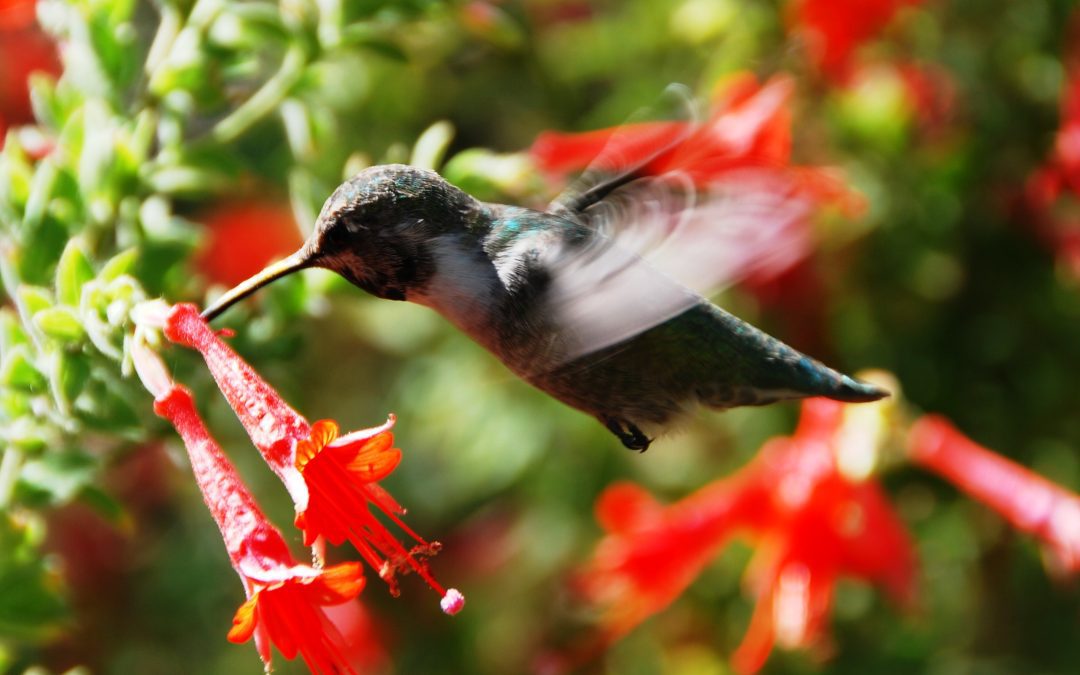With its stunning landscapes and pleasant climate, Sarasota, Florida, provides the perfect backdrop for attracting wildlife to your garden. Whether you’re a bird enthusiast or a pollinator advocate, creating a bird-friendly and pollinator-friendly landscape can enhance the natural beauty of your surroundings while supporting the local ecosystem.
Keep reading to learn some tips and strategies for transforming your garden into a haven for birds and pollinators.
Bird-Friendly Landscaping
Here are some of the plants that help with bird-friendly landscaping:
Native Plants
Start by incorporating native plants into your garden. Sarasota County boasts diverse native species like Firebush, Beautyberry, and Simpson’s Stopper. These plants provide food and shelter for birds and thrive in the local climate, requiring less maintenance.
Bird Feeders
Setting up bird feeders is a delightful way to attract feathered visitors to your garden. Opt for various feeders to accommodate different bird species and provide a mix of seeds, suet, and nectar to cater to multiple dietary preferences.
Nesting Boxes
Suitable nesting spots are essential for encouraging birds to stay in your garden. Install birdhouses designed for specific species and position them at the right height and orientation to attract your desired feathered friends.
Avoid Pesticides
Minimize or eliminate the use of pesticides in your garden, as they can harm not only the insects but also the birds that rely on them for food. Embrace natural pest control methods like companion planting and beneficial insects.
Pollinator-Friendly Landscaping
Some of the flowers for pollinator-friendly landscaping are:
Native Wildflowers
Sarasota has many native wildflowers, including Blanketflower, Tickseed, and Coreopsis. Planting these flowers in your garden provides nectar sources for pollinators like bees and butterflies.
Bee-Friendly Plants
Bees are critical pollinators for many crops. Include plants like Salvias, Lantanas, and Sunflowers which attract bees with their vibrant blossoms and abundant nectar.
Provide Shelter
Create suitable nesting sites for native bees by leaving some areas of your garden bare, providing bee blocks, or setting up bee condos. Solitary bees, like Mason bees, are efficient pollinators and need safe places to lay their eggs.
Year-Round Blooms
Plan your garden well to supply blooming plants throughout the year. This ensures pollinators have a reliable food source from spring to fall.
Benefits of Bird-Friendly and Pollinator-Friendly Landscaping
Some of the advantages to the homeowners and the community are:
Enhanced Biodiversity
By cultivating native plants and providing habitats for birds and pollinators, you support a diverse range of species. This diversity extends beyond birds and insects, including other wildlife like frogs, toads, and beneficial soil microorganisms. A thriving ecosystem with various species is extremely resilient and better equipped to withstand environmental changes and disturbances.
Natural Pest Control
Birds are voracious insect-eaters, and many pollinators are also predators of garden pests. Attracting these natural allies to your garden can significantly reduce the need for chemical pesticides. This benefits your garden and contributes to a healthier environment by reducing the harmful effects of pesticide use on non-target organisms.
Improved Crop Yields
Bird and pollinator-friendly landscaping can increase crop yields for gardeners who grow fruits and vegetables. Many food crops reproduce with bees, butterflies, and other pollinators. Giving them a suitable habitat increases the likelihood of successful pollination, resulting in more extensive and abundant harvests.
Economic Benefits
Beyond the personal rewards of a beautiful garden, bird-friendly and pollinator-friendly landscaping can benefit homeowners economically. Studies have shown that well-designed landscapes with attractive native plants and wildlife features can increase property values. The uniqueness and beauty of such gardens can appeal to potential buyers and may even help sell a property more quickly.
Educational Opportunities
A garden teeming with birds and pollinators provides an excellent educational opportunity for children and adults. Observing these creatures in their natural habitat can foster a deeper appreciation for the beauty of the natural world. It offers a chance to learn about local wildlife, their behaviors, and their role in the ecosystem, which can be both enjoyable and educational.
Mitigation of Urban Heat Island Effect
Sarasota’s warm climate can lead to the urban heat island effect, where urban areas experience higher temperatures than surrounding rural areas. Bird-friendly and pollinator-friendly gardens, with their lush vegetation, can help mitigate this effect by providing shade and cooling through transpiration. This creates a more comfortable outdoor environment and reduces energy consumption for cooling homes.
Conservation of Native Species
Many bird species are declining due to habitat loss and other human-related factors. By providing suitable habitats in your garden, you contribute to the conservation of native bird species. This is particularly crucial for pollinators like bees and butterflies, as their populations face threats.
Positive Environmental Impact
Bird-friendly and pollinator-friendly landscaping practices have a positive environmental impact. These gardens help improve air and water quality by reducing the need for chemical fertilizers and pesticides. They also aid in carbon sequestration and promote healthy soil by fostering beneficial microorganisms.
Community Engagement
Creating a bird-friendly and pollinator-friendly garden can bring communities together. Sharing knowledge, seeds, and gardening tips with neighbors can lead to stronger community bonds and a commitment to environmental stewardship.
At Sarasota Landscaping Inc., we invite you to partner with us in transforming your outdoor space into a haven for wildlife and a source of pride for your community. Our experienced team specializes in native plant landscaping, bird-friendly design, and pollinator habitat creation. Contact us for more details!

